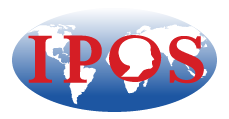- Home
- IQ News
IPOS IQ News
International Psycho-Oncology Society 244 Fifth Avenue, Suite L296 T: +1 416-968-0260 |
© 2024 International Psycho-Oncology Society | Website powered by Funnel Communications Inc. |
International Psycho-Oncology Society 244 Fifth Avenue, Suite L296 T: +1 416-968-0260 |
© 2024 International Psycho-Oncology Society | Website powered by Funnel Communications Inc. |
